This eating habit will get you dumped by a Millennial, poll finds
Singles are getting too comfortable with living alone — and it shows.
That’s according to 38% of young adults who said they consider eating in bed to be a dating dealbreaker, as part of a recent survey.
But it could be another case of Millennial self-loathing as they’re also the generation most likely tuck-in with a midnight snack, with 40% also conceding that they occasionally eat in bed.
The findings suggest that bedtime cravings are at an epidemic level as 48% of respondents regularly eat just before going to sleep — with half (50%) reaching for something sweet and about a third (32%) going for salty.
The survey of 2,000 adults, conducted by OnePoll for Serta Simmons Bedding, aimed to identify America’s most common sleep disruptors, and found eating in bed to be one of the most common reasons. Four in five agreed that a crummy bed leads to a bad sleep, despite the fact that 35% of respondents of all ages admitted to occasionally leaving them there.
Sleep doesn’t come easy to the average person, with 21% of people saying they haven’t gotten a perfect night’s sleep in over a month. It’s reportedly standard for Millennials to wake up three times in a night, on average, while 30% of Baby Boomers lamented that they hadn’t gotten good sleep in about a month.
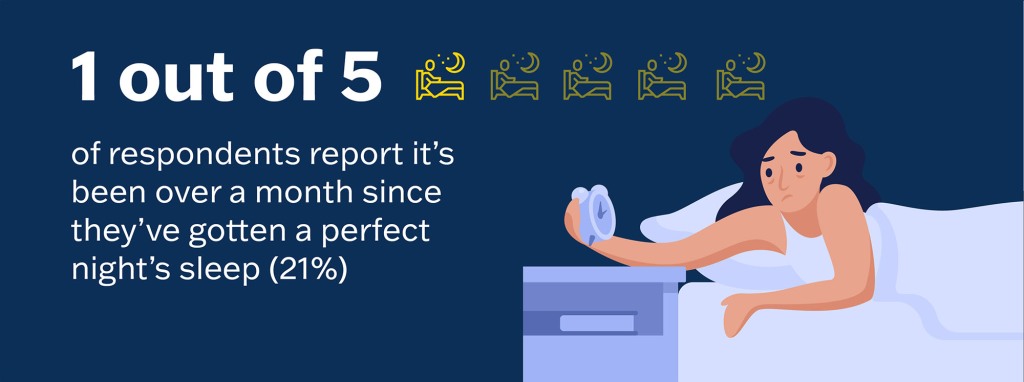
Gen Z — 18-25 year olds — and the Silent generation — 77-94 year olds — were the most likely to toss and turn throughout the night, at 73% and 74%, respectively. Overall, 65% of sleepers have struggled to find the right sleeping position.
Hot sleepers make up the bulk of restless Americans, per 76% of respondents.
“Studies have shown that sleeping hot can impede the body’s ability to rest and recover,” said JD Velilla, Serta Simmons Bedding’s Head of Sleep Experience.
Northeasterners are most likely to wake up when they’re too hot in their sleep, said 89% of them, while just 61% of those from warm Southern climates were bothered by a balmy bedroom.
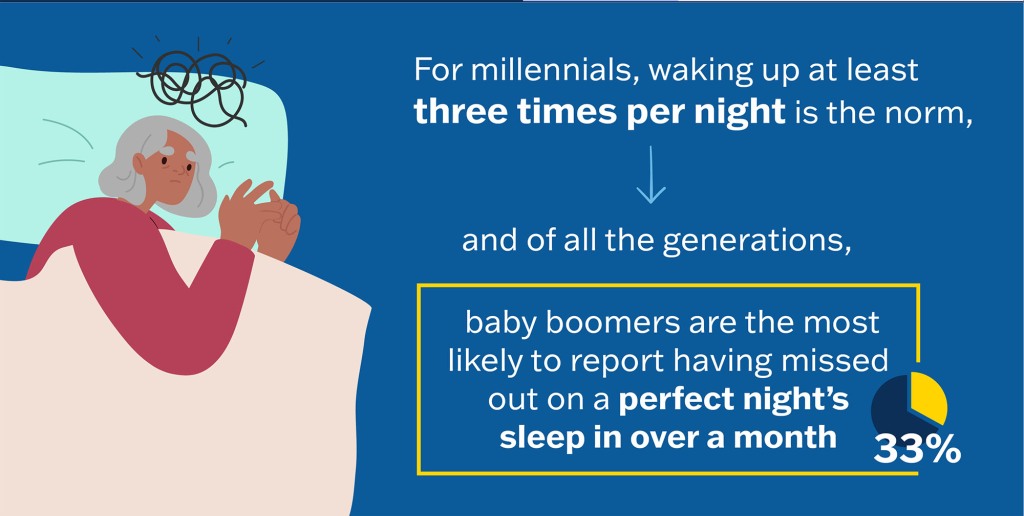
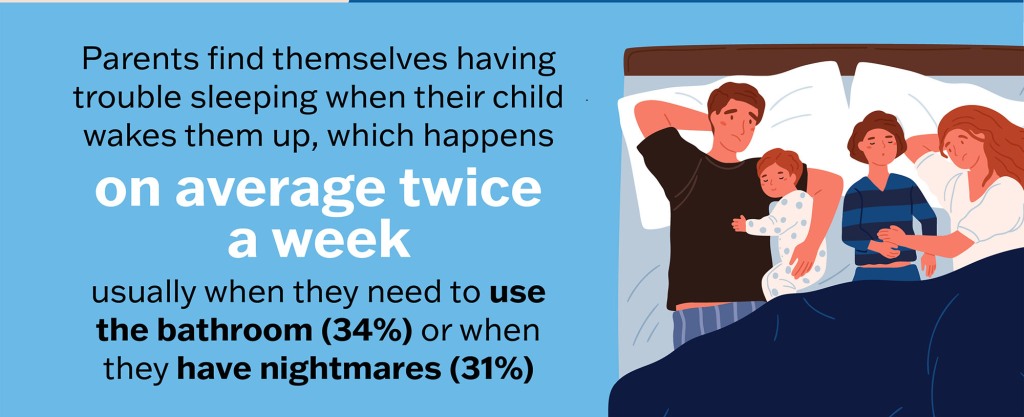
When respondents wake up due to being hot, they turn on the AC or a fan (49%), sleep without covers on (37%) or change their clothes (36%).
“Interrupted sleep may lead to irritability, increased stress and decreased creativity, among other things. If you tend to sleep hot, light clothing, breathable linens or a mattress with cooling technology can help,” Velilla said.
Parents and pet owners also have a specific set of sleep disruptors when it comes to their children and pets.
Many parents find themselves being woken up by their children on average two times a week — particularly when they need to use the bathroom (34%) or have nightmares (49%). Almost half of parents (49%) will let their kids get into bed with them after being woken up.
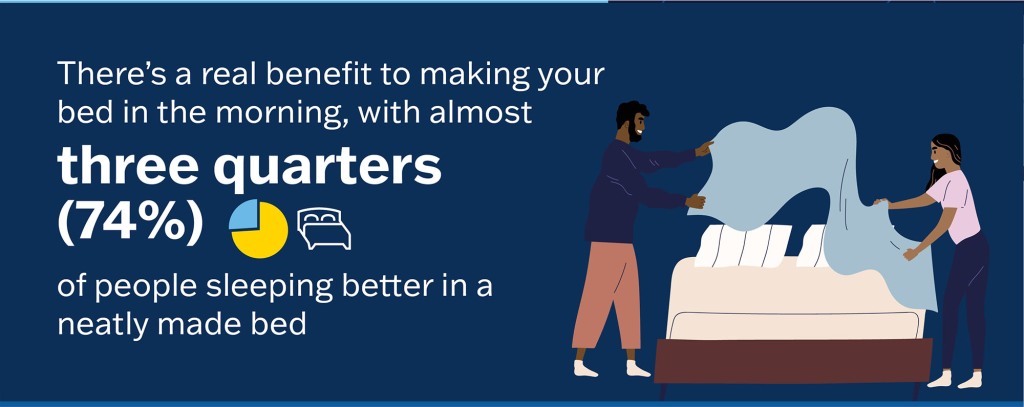
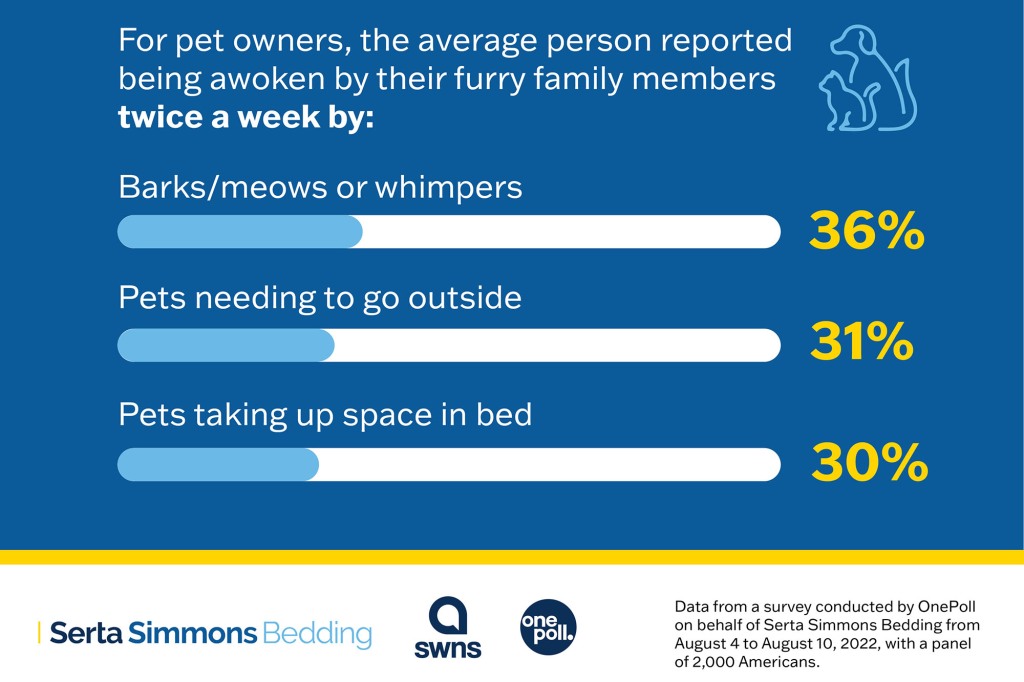
However, back-to-school season tends to have parents’ sleeping habits looking up. Half said they get a better quality sleep after their kids go back to school, and about the same said they get more sleep during this time.
While pets are not children, they tend to wake up their family members just the same. Pet owners are mostly woken up when their pet needs to go out (31%), takes up too much space on the bed (30%), or barks, meows or whimpers (36%).
“While there are many sleep disruptors keeping us awake, there are also some ways to ensure you’re getting your nightly shut-eye,” Velilla said.
Having a simple bedtime routine can help a person get a good night’s sleep, such as making your bed. Seventy-four percent of respondents said getting into a made-up bed at night helps them sleep better.
“Some of the top tips I recommend include sticking to a sleep schedule and routine, understanding, and proactively addressing, your sleep disruptors, as well as making your bedroom a recovery room designed to maximize sleep,” Velilla added.
Read the full article Here


